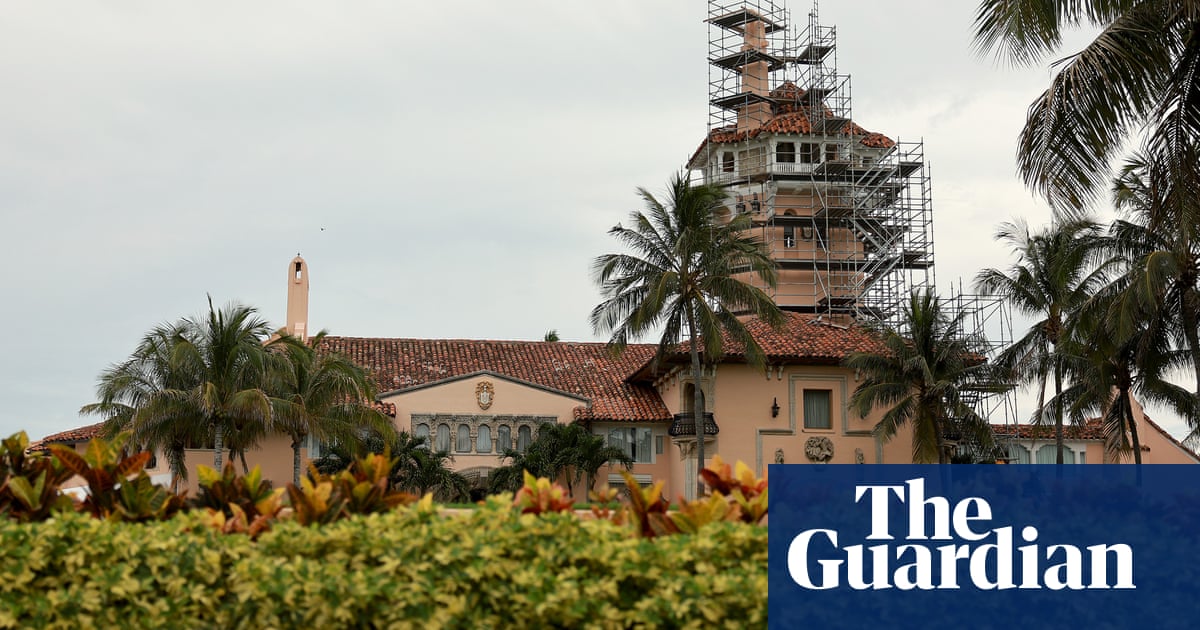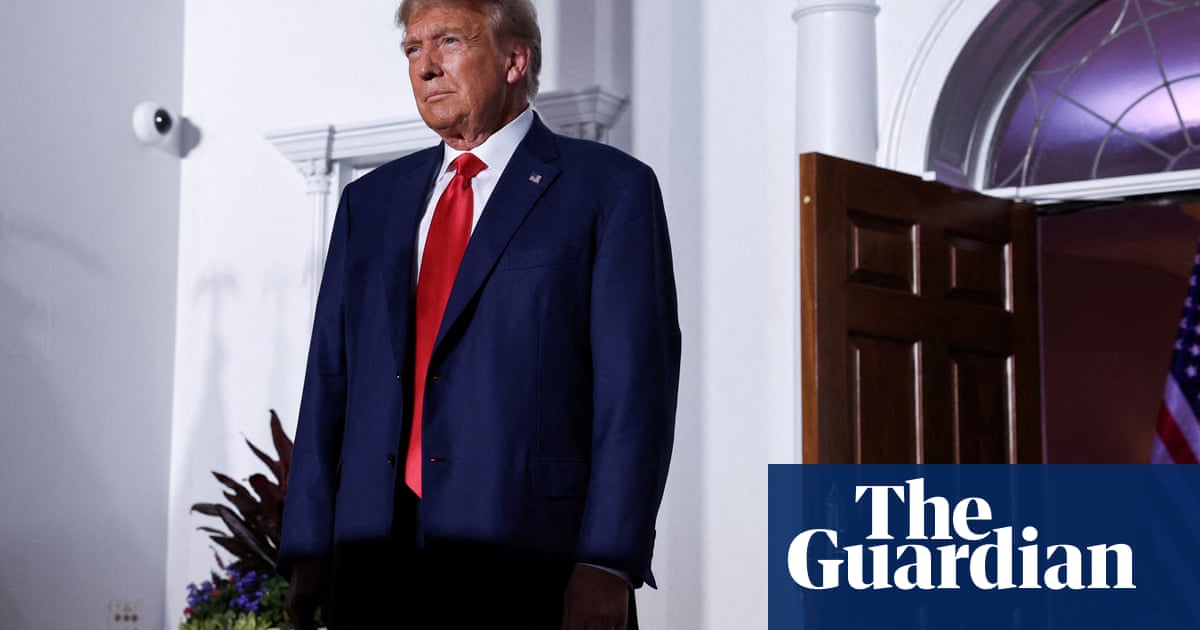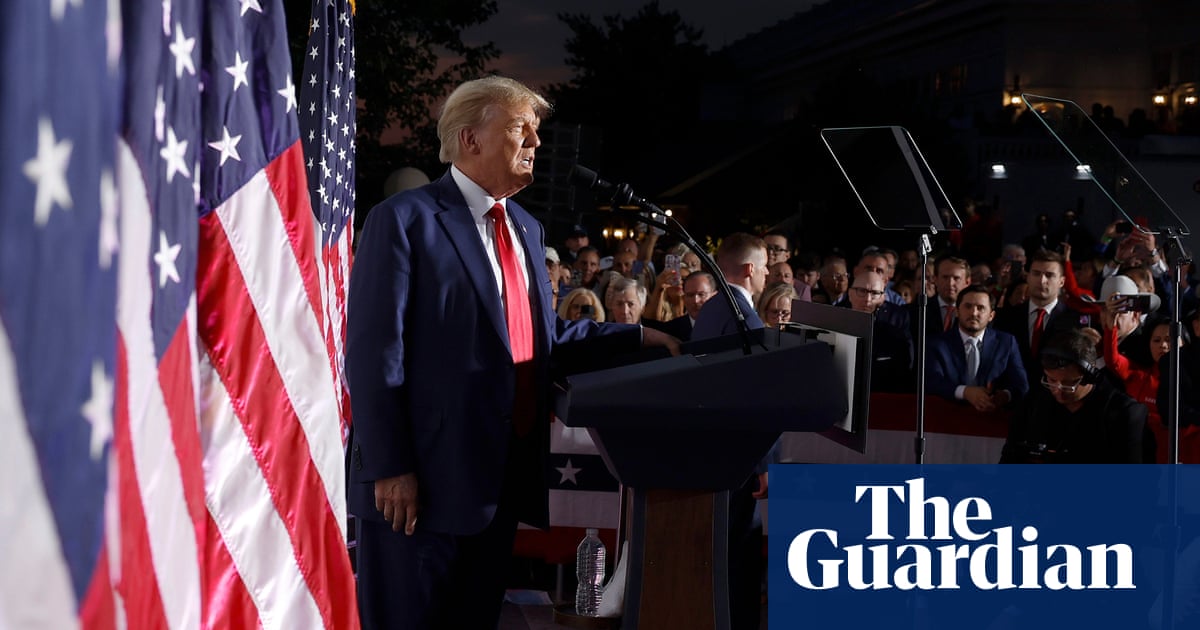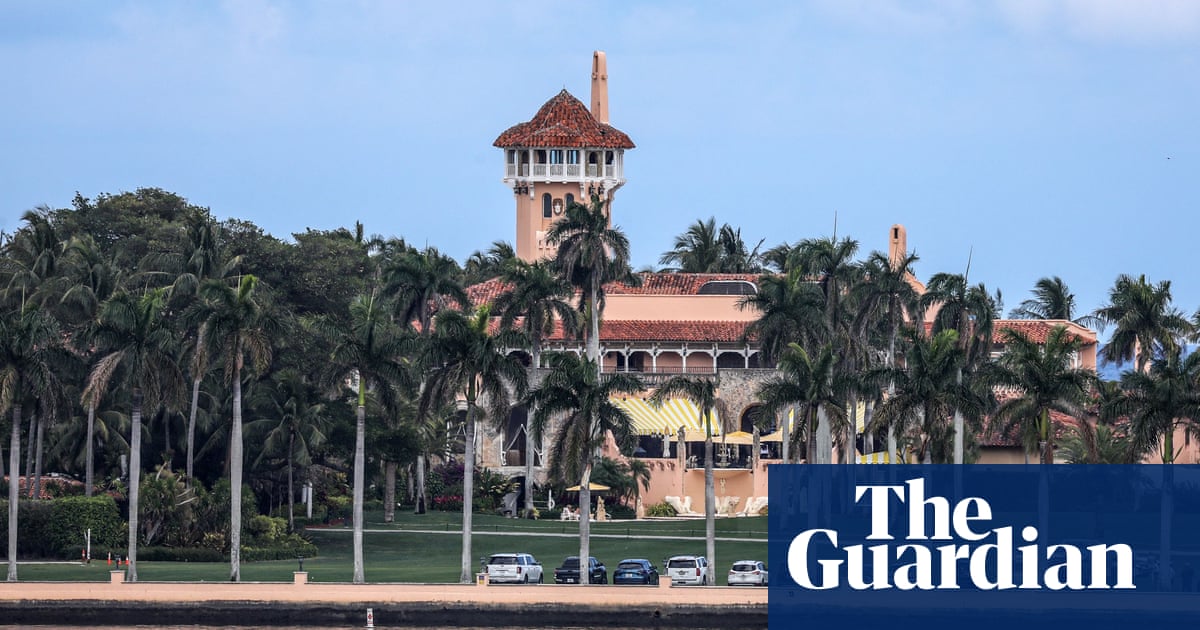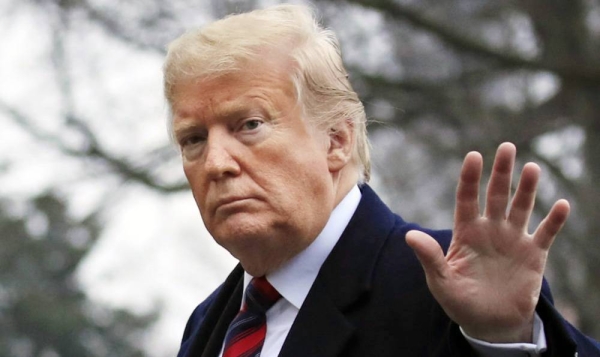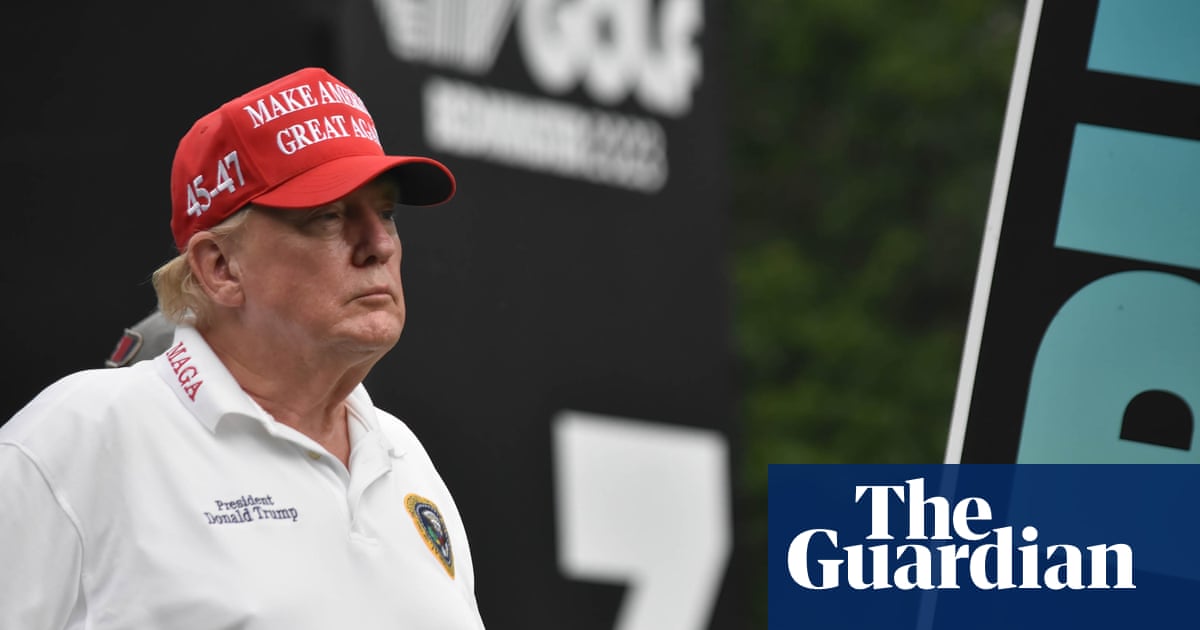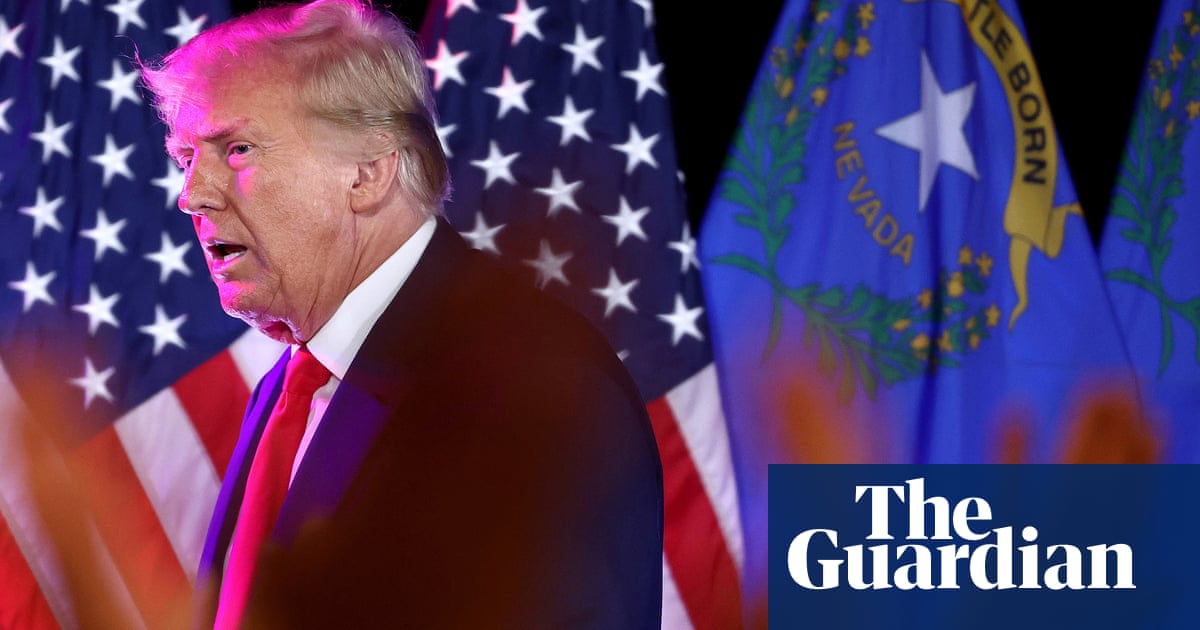
Donald Trump asked the federal judge overseeing the Mar-a-Lago classified documents case to indefinitely postpone setting a trial date in court filings on Monday and suggested, at a minimum, that any scheduled trial should not take place until after the 2024 presidential election.
The papers submitted by Trump’s lawyers in response to the US justice department’s motion to hold the trial this December made clear the former president’s aim to delay proceedings as their guiding strategy – the case may be dropped if Trump wins the election.
Trump’s lawyers essentially argued in the 12-page court filing to US district court judge Aileen Cannon in Florida that she should not bother setting a tentative trial date until the major pre-trial motions were finished because they could not know how long the discovery process might take.
“The court should, respectfully, before establishing any trial date, allow time for development of further clarity as to the full nature and scope of the motions that will be filed,” the filing said.
Trump was charged with retention of national defense information, including US nuclear secrets and plans for US retaliation in the event of an attack, which means his case will be tried under the rules laid out in the Classified Information Procedures Act, or Cipa.
Cipa provides a mechanism for the government to charge cases involving classified documents without risking the “graymail” problem, where the defense threatens to reveal classified information at trial, but the steps that have to be followed mean it takes longer to get to trial.
The process includes the government turning over all of the classified information they want to use to the defense in discovery, like any other criminal case, in addition to the non-classified discovery that is done in a separate process.
Trump’s lawyers argued the amount of discovery – the government is making the material available in batches because there is so much evidence and it has not finished processing everything that came from search warrants – meant that they could not know how long the process would take.
“From a practical manner, the volume of discovery and the Cipa logistics alone make plain that the government’s requested schedule is unrealistic,” Trump’s lawyers wrote.
The filing also complained that the justice department’s proposed December trial date did not reflect precedent, such as with former NSA analyst Reality Winner, who was charged with retaining national defense information in June 2017 and only went to trial in October 2018.
In arguing against the December trial date, Trump’s lawyers suggested there would be challenges in selecting a jury ahead of the 2024 election, for which Trump is the frontrunner for the Republican nomination, and so the trial should wait until after it was over.
The response from Trump’s lawyers did not address why the judge, instead of proceeding with no schedule whatsoever, could not at least draw up a tentative schedule that lays out in broad terms how the pre-trial process for classified and non-classified materials should work, as is typical.
Although time-consuming, Cipa in some ways is straightforward, and the statute outlines that the judge should establish a timetable for the classified discovery at the very start of the process, at a “Section 2 hearing”, which all parties agreed on Monday could take place on 18 July.




